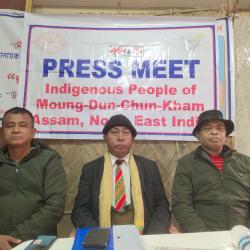India’s ‘Look East Policy’ concern for Burmese
India the largest democracy in the world has always been maintaining good relationship with its neighbors like Bhutan, Nepal, Pakistan, Bangladesh, Sri Lanka and Burma. The efforts are continue for a peaceful co-existence with all its neighboring countries. At a time when this country pleads for democracy in other countries and has welcomed the democratically elected governments in Nepal, Pakistan and Bangladesh, its attitude towards Burma (Now Myanmar) seems a bit different. This shift in its policy took place during the year 1990, when India launched its “Look East Policy” and began to support the military junta in Burma. Since India has embarked upon building a broad based relationship with the military junta including cooperation on defense, trade and investment, energy and natural resources, a series of agreements and Memorandum of Understanding (MoU) have already been signed, such as the construction of Sittwe port, the multi model Kaladan project and Energy and Petroleum Cooperation. India’s closer relationship with Burma’s junta and its cold approach to the people’s movement for human rights and democracy in Burma has raised concern amongst Indian civil society as they question whether India has abandoned the principle of humanist and idealist policy guided by Mahatma Gandhi and Jawahar Lal Nehru. Burma Centre Delhi, an organization formed by members from India and Burma civil society groups is out to work for restoration of peace justice, democracy and human rights in Burma. It still believes India is an important neighbor that can influence Burma in bringing about a democratic transition acceptable to the people of Burma. It may be recalled here that Burma was under British colonial rule for more than one hundred years. Since its independence on January 4, 1948 this country practiced a democratic parliamentary system under the leadership of the premier U Nu. This system continued for fourteen years only, when Burmese army staged a military coup overthrowing the democratically elected government and imposing oppressive military rule. The coup instigators, namely, the Revolutionary Council led by General Ne Win, abolished the constitution and suspended all democratic rights of the people. All legislative, executive and judicial powers were vested in the hands of Gen Ne Win. The military used guns to control the country according to their wishes, keeping a tight lid on the political activities of those who love democracy in the country. The military regime transformed itself into a ruling political party in the year 1974, which was named the Burmese Socialist Program me Party (BSPP). The BSPP ruled over the country for fourteen years until 1988, with single party dominated political system with the ideology ‘the Burmese way to socialism’. During these years the country became one of the poorest countries in the world. Therefore, in 1987 Burma was listed as a least developed country (LDC) by the United Nations. Due to deterioration of Burma’s economic situation and oppressive one political party rule on August 8, 1988, which is known as 8-8-88, the people (workers, monks, peasants, teachers, government servants and youth) of Burma led by the university students at Rangoon rose up as one to call upon the military rulers to abolish the ill-reputed one party system, demanding democracy and human rights in the country. The military responded with bullets against the peaceful demonstrators and killed more than 3,000 demonstrators throughout the country. After 8888 incidents, Gen Saw Maung took over the country on 18th September 1988 and renamed the ruling regime the State Law and Order Restoration Council (SLORC). Therefore in 1989 under the SLORC Burma was renamed as Myanmar to divert international attention and criticism. A multi-party general election was held in May 1990, in which the National League for Democracy (NLD) won a landslide victory. However, the military ignored the election results and did not hand over the people’s mandate to the winning party, instead imposing authoritarian rule and violently cracking down on the people’s pro-democracy movement. In spite of the repressive military rule for about fifty years the people aspiration for peace, dignity and democracy continues till now and Burmese people hope that India can play a better role to bring democracy back in their country.
Other Contents by Author
With the lapse of time and rapid changes in political scenario the illusion of regionalism is waning in Assam and the north eastern parts of the country. During last several years Indian politics reached a chaotic situation throughout the country leading an air of hatred against the national political parties. There was a deep feeling in the people that the national political parties failed to deliver goods and look into the interests of the region. In a vast country like India every region has got different types of problems. Simultaneously, all regions of the country face different types of situations. To safeguard the interest of the region, the necessity of regional political parties...
Emergence of a composite silk unit, namely, Fabric Plus is a boon to the silk industry in Assam. Union minister for textiles, Dayanidhi Maran, on August 19 last, inaugurated a composite silk unit at Chaygaon industrial growth centre, near Guwahati. The project is estimated to cost around Rs.5.50 crore, including infrastructure for spun silk mill, machineries, working capital and looms etc. The promoters, Fabric Plus, have contributed an amount of Rs.22.60 lakh. The Central and State governments have provided a subsidy of Rs.155.30 lakh and Rs.48.10 lakh respectively, for installation of machineries and equipments etc. The total output from the mill is likely to support around 4000 Eri...
Trade is the ‘spinal cord’ of a country’s economy and the traders are its protectors. At a time our traders were among the most trusted nationals, who sacrificed all their earnings and belongings, when the country needed it. Those days have gone in the pages of history now. The situation is changed and the national feelings in the trading community have gradually diminished. Honesty, the essence of the trade has lost its value and it is no more the ‘best policy’ in the trade. The majority of traders feel that they could not survive if they try to be honest. They have invented the technique of more earnings with less investments and spurious products. They try...
In the Indian life style religion has got most important place and everybody in this democratic country is free to worship one’s Almighty in one’s own way. But the religious people are divided among themselves on the pattern of worship, be they Christians, Muslims or Hindus. Many factions have emerged out in the Christianity and Islam too, but maximum division is visible in Hinduism. Though the religious teachings are about the purity of mind and hearts, in practice the followers react otherwise. Same is the case with the institutions running the religious Trusts throughout the country. In India there are thousands of religious places for Hindus, both big and small. Among them...
Recent violence in North Cachar Hills district of Assam has attracted entire nation to put efforts to bring peace in this ‘ever peaceful’ autonomous council. A large number of fact finding committees so far have visited the places where violence occurred with hundreds of people killed and houses burnt. Recently a five member fact finding committee of Justice on Trial visited the violence-hit N C Hills district and contacted a number of villagers and tribal groups of Dimasas, Zemes, Karbis, Kukis, Hmars and other indigenous tribes. The people are sincerely crying for peace in the areas.
Women of all tribal and non-tribal indigenous groups also expressed the plight of refugees...
Mahatma Gandhi had expressed his clear view on the importance of ‘healthy work culture’ in the Harijan newspaper of 15th October, 1938, emphasizing on hard work by the people of the country, for attaining the goal of freedom. He dared to declare as ‘declaring my birthday as a holiday should be treated as a cognizable offence’. This was a clear indication that the “Great Soul’ was confident of the might of his people, which later on succeeded in bringing freedom to the country. His experiments on Swadeshi movement brought good results. But the present situation has completely changed the whole thing and his dreams are shattered.
Unfortunately, with his...
The North East Election watch, a part of National Election Watch (NEW) has been monitoring the candidates for 2009 Urban Local Body elections to be held on July 31 next, covering 70 number of town committees and municipal boards of Assam. In these Urban Local body Elections, total 673 wards of the states will face elections where 29 constituencies are reserved for SC, 34 for SC women, 5 for ST, 5 for ST women and 212 wards for general women. The Supreme Court of India has declared through its verdict dated March 13, 2003 that “It is essential by law to provide that a candidate seeking election shall furnish the details of all his assets (movable and immoveable) possessed by him or...
Recent opening of the College of Aeronautical Engineering in Guwahati, has been welcomed by the people of the state, which has brought the hope to bring the country at par with others, providing better educational facilities and encouraging the youths to build up their career in aviation. For them the sky is not at distance. There is no dearth of meritorious young men in this part of the country. The lack of such facilities has so far been the main obstacle before them to decide a suitable career.
Earlier, air travel was a privilege only a few could afford, but with the commencement of operations by the low cost careers, now large number of people can afford air travel. At present Indian...
March month is the closing of fiscal, but the Assam government plans to begin the implementation of developmental schemes during this very month alone. An example of such action has been found in the disastrous flood and erosion problems in Matmara recently. Giving brief picture of the recent flood problems affecting Matmara, Dhakuakhana and Majuli areas of the state to media persons recently, the All Assam Water Resources Contractors’ Association (AAWRCA), alleged that ignoring the suggestions by the organization, the government had gone out of the way to implement the schemes of flood control and erosion, resulting in such calamities. The organization’s president, Muhi...
The recent slow down in the global economy has seriously affected the business of micro and small scale industries in Assam. This has coupled with existing road blocks and pushed back this most employment generation sector into dire straits. While the global recession can not be tackled easily, the many existing impediments can easily be removed by the state government intervention,’ said B L Agarwal and J N Baruah, the president and general secretary respectively of the All Assam Small Scale Industries Association. They were addressing the media persons in Guwahati, recently.
Agarwal said that the existing VAT laws in Assam are heavily loaded against the local industries. If...










Comments
Pages
Add new comment